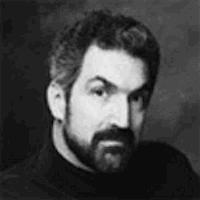Posted by editor

Subscribe to our
mailing list
|
 Thu May 06, 2010 5:26 pm Why Would Anyone Want to Blow Up Times Square? By Dr. Pipes Thu May 06, 2010 5:26 pm Why Would Anyone Want to Blow Up Times Square? By Dr. Pipes
|
 |
|
| |
Why Would Anyone Want to Blow Up Times Square?
By Daniel Pipes
National Review Online
May 5, 2010
When news comes of Muslims engaging in violence, the triad of politicians, law enforcement, and media invariably presumes that the perpetrator suffers from some mental or emotional incapacity. (For a quick listing of examples, see my collection at "Sudden Jihad or 'Inordinate Stress' at Ft. Hood?").
Instead, I argue, they should begin with a presumption of jihadi intent. That is, the default expectation should be ideological passion, not insanity. Spreading Islam and applying Islamic law are the goals. Of course, some crazy Muslims exist and they do engage in violence, but they constitute a microscopic percentage of the 15,247 Muslim terrorist incidents since 9/11, as counted by www.thereligionofpeace.com.
The failed effort to blow up an SUV in New York's Times Square prompted speculation about the would-be bomber's motives even before the identity of Faisal Shahzad, an immigrant from Pakistan, had been made public. The Nation's Robert Dreyfuss discounted the possibility of a jihadi from the Pakistan-based Taliban, "it seems far more likely to me [he] was either a lone nut job or a member of some squirrely branch of the Tea Party, anti-government far right."
Then, just hours after Shahzad had been arrested, authorities rushed to assure the public his action had nothing to do with Islam. Examples from May 4:
* Mike Bloomberg, mayor of New York City: the bomb could have been placed by "somebody with a political agenda who doesn't like the health care bill or something. It could be anything."
* Mahkdoom Qureshi, Pakistan's foreign minister: "This is a blow back [for U.S. military activities in Pakistan]. This is a reaction. This is retaliation. And you could expect that. Let's not be naive. They're not going to sort of sit and welcome you eliminate them. They're going to fight back."
* Nadeem Haider Kiani, spokesman for the Pakistani embassy in Washington: it's too soon to tell exactly what motivated the bomber but early indications suggest he is "a disturbed individual."
* Cable News Network: "It can confirmed that his house has been foreclosed in recent years. I mean, one would have to imagine that brought a lot of pressure and a lot of heartache on that family."
* CBS News: "It isn't clear if more suspects are at large OR what the motive could be."
* The Washington Post: Under the title, "The economic crisis meets terrorism," Ezra Klein notes that Shahzad's house was foreclosed and comments: "This guy is like string theory for the media: He brings together the seemingly incompatible stories that drove the past decade. That said, you of course don't want to speculate on why someone 'really' did something. The hearts of men are opaque, and motives are complex."
And here's a collection from today's papers
* Law enforcement (as reported by NY1): "Investigators say they still have no motive for Shahzad's actions." (May 5, 2010)
* Kifyat Ali, a relative of Shahzad's: "We are shocked. He had no connection with any political party or jihadi group." (May 5, 2010)
* Associated Press headline: "NY car bomb suspect cooperates, but motive mystery." (May 5, 2010)
* Associated Press story: "Federal officials aren't talking about a motive in the arrest of a naturalized U.S. citizen charged with attempting to set off a bomb in New York's Times Square." (May 5, 2010)
* New York Post "exclusive": Shahzad "said he was driven to evil by the slew of deaths among leaders of the terror group, law-enforcement sources revealed yesterday. Sources said he was an eyewitness to the onslaught throughout the eight months he spent in Pakistan beginning last summer." (May 5, 2010)
* USA Today headline: "Motive of NYC car bomb suspect remains a mystery." (May 5, 2010)
* The Guardian headline: "Times Square bomb: Pakistanis puzzled by bomber's motives." (May 5, 2010)
Comments:
(1) Some of these interpretations say the motives are mysterious, some of them speculate about one thing or another – but all assiduously avoid the elephant in the room.
(2) You can't win a war if you don't have the courage to name the enemy.
(3) Naming the enemy means changing some of the more pleasant aspects of Western life, and so is tough to do.
(4) I expect that naming the enemy will occur only after a cataclysm ends our patience with minced words.
Mr. Pipes is director of the Middle East Forum and Taube distinguished visiting fellow at the Hoover Institution of Stanford University.

_________________
Use your Facebook account to comment
   
Help us stay online!
 |
|
|
|












